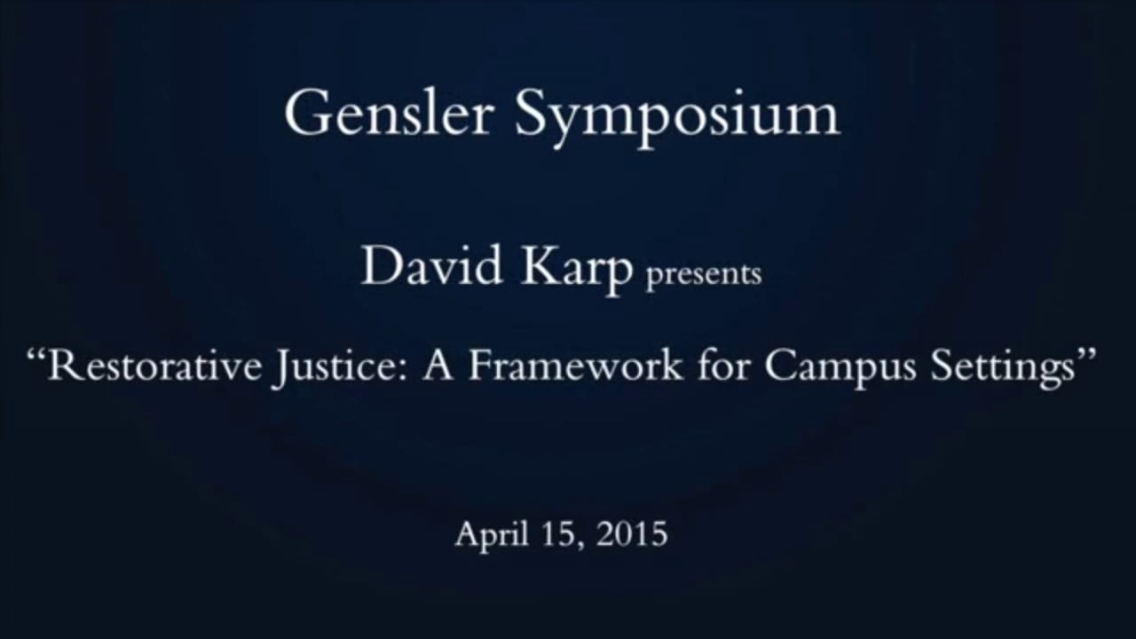Gensler Symposium Looks at Punishment, Incarceration, and Restorative Justice
Error message
Could not retrieve the oEmbed resource.
MIDDLEBURY, Vt. – The concept of restorative justice and how it might be implemented at Middlebury for student-discipline cases was one of the topics explored at the 2015 Gensler Family Symposium on Feminism in a Global Context, April 13-17.
Students, faculty, invited guests, and community members participated in this year’s gathering on the subject of “Punishing Bodies: Feminist Responses to the Carceral State.” The Gensler Symposium offered perspectives on mass incarceration, the policing of poor communities, and violence by the state – via a range of panel discussions, lectures, conversations, and film.
Two Middlebury College faculty members presented papers: Assistant Professor of Sociology Rebecca Tiger on “Addiction, Surveillance and the Carceral State,” and Postdoctoral Fellow in American Studies J. Finley on “2 Bees from Oakland: Truthful Lies, Sincere Realities, and Freedom Dreams in Black Women’s Comedy.”
Also at the symposium, a proponent for addressing student misbehavior with a system of restorative justice made it clear that the method is effective on his home campus. David Karp, the associate dean of student affairs and professor of sociology at Skidmore College in Saratoga Springs, N.Y., said “RJ” process begins when the accused individual admits his or her wrongdoing. After that, the major steps are:
- Identifying all of the parties who need to participate in the discussion, including the offender, the parties who were harmed, other stakeholders, and a facilitator,
- Agreeing that the process should identify what can be done to repair the harm, and what can be done to rebuild trust, and
- Accepting the premise that restorative justice is not about what the community is going to do to the offender, but rather about what the offender can do to make the situation right.
In a college community, Karp said, the important question is usually, “What would it take for us to feel okay about the offender continuing on as a member of the community?” The restorative justice approach to student misbehavior is vastly different than the punitive sanctions of fines, suspensions, or expulsions.
Watch a video below of David Karp’s presentation and his conversation with Karen Guttentag, Middlebury’s associate dean for judicial affairs and student life.
The Gensler Family Symposium on Feminism in a Global Context was established in 2008 by Drue Cortell Gensler, Class of 1957.
This year’s event was co-organized by Laurie Essig, associate professor of sociology and director of Middlebury’s program in gender, sexuality, and feminist studies, and Roberto Lint Sagarena, associate professor of American Studies and director of the Center for the Comparative Study of Race and Ethnicity. The symposium had additional support this year from the U.S. Department of Justice, Office on Violence Against Women.



